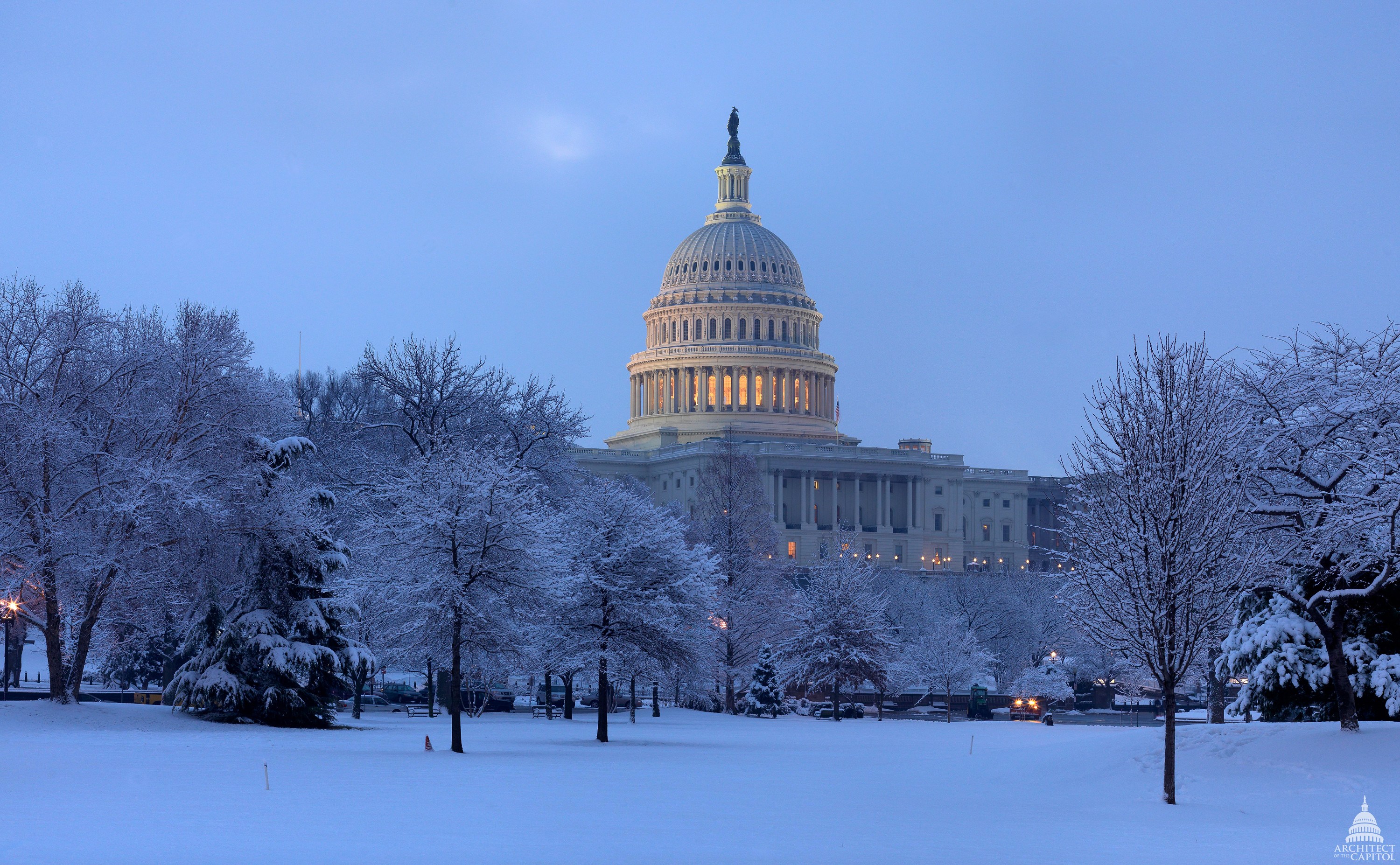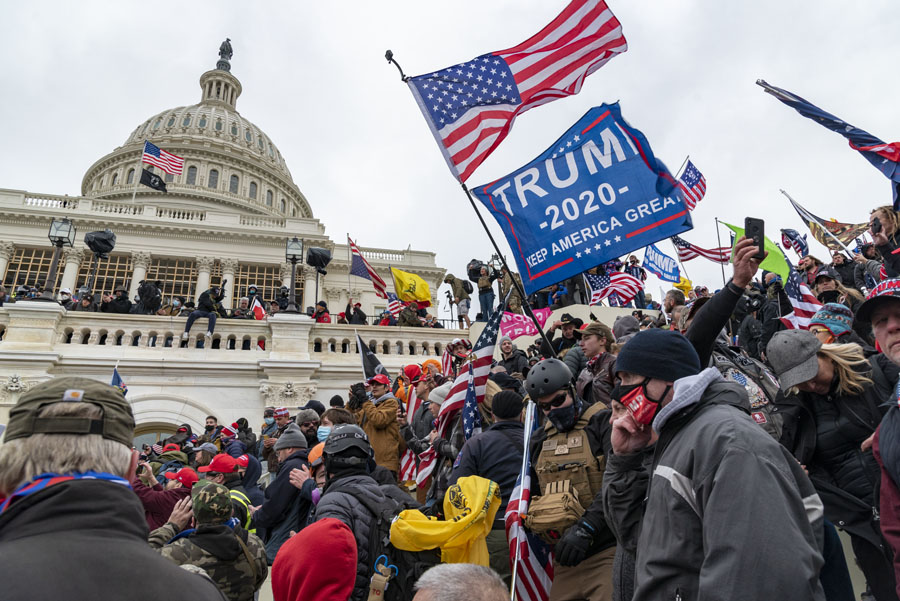The Situation: Today Nothing Happened

Published by The Lawfare Institute
in Cooperation With

The Situation last week contemplated what events one should follow, and what events one should ignore, over the last few weeks of transition.
Today let’s talk about uncomfortable memories.
A haiku that appears in Osamu Dazai’s novel, The Setting Sun, reads:
Last year nothing happened
The year before nothing happened
And the year before that nothing happened.
The poem means nothing unless you happen to know that the book was published in Japan in 1947 and that it is set in the immediate post-war period. Then it suddenly acquires profundity.
Today, nothing happened
Four years ago nothing happened
And four years before that nothing happened.
There was no insurrection today. There was no riot, no effort to storm the Capitol. There was no effort to keep Joe Biden in power—or to forcibly install his vice president in his place. In fact, Kamala Harris personally presided over the counting of the electoral vote in which she did not prevail. She personally declared her opponent the winner. She fulfilled her remaining role in The Situation, which was to bring it on.
And if nothing happened today, maybe that whole anxiety about Jan. 6 more generally was a bit of a hyperventilation. Maybe nothing ever happened on Jan. 6, when Congress meets in a joint session to count electoral votes. And maybe talking about it all is just a dreary business.
“Of course all kinds of things did take place” during the war, Dazai’s narrator acknowledges, “but when I try to recall them now, I experience that feeling that nothing happened. I hate talking about the war or listening to other people’s memories. Many people died, I know, but it was still a dreary business, and it bores me now.”
In 2020, nothing happened. Oh, I know something happened, sure. But it’s a dreary business, and it bores me now. And nothing happened in 2016 either. Or if something did it was overhyped and the product of the FBI and Hillary Clinton. And it’s also a dreary business that bores me now. So I choose not to remember—or not to care, which is more or less the same thing.
And if nothing happened in 2020, that means there is no reason not to pardon all those people—whose cases my colleague Roger Parloff has been meticulously documenting the past four years, including as recently as this morning.
When nothing happened, after all, too good a memory about who is responsible—who did that thing which didn’t happen—is unforgivable. It’s a kind of witch hunt.
And when nothing happened, or when it’s a dreary business remembering what happened and one prefers to act as though nothing happened, it’s very annoying that some people keep insisting on memory.
It’s annoying when you want to forget about slavery and focus on the “lost cause” fairy tale that there are these Black people who insist upon their memory—and there are these historians who take this insistence seriously. And it’s annoying if you’re a great Russian nationalist that these Ukrainians won’t just join you in forgetting about that time you starved millions of them to death. And it’s annoying if you’re in post-war Japan and that whole dreary business about the war turns out to involve the deaths not merely of “many people” of your own but a great many non-Japanese civilians in China and Korea and elsewhere and the serial rapes of “comfort women” and countless other atrocities. And it’s very tedious of those peoples to insist on their memory that, well, something did happen.
And it is similarly annoying when you are elected president fair and square, and when you claim—and your prosecutors and the courts even accept—that your election wipes the slate clean for whatever may have happened, and when nothing happens to impede your own ascension, and when the barons of industry are willing to forget because the whole thing really is a dreary business, when you have—in other words—genuinely gotten away with it but for this memory that everyone shares, even the people who choose not to acknowledge sharing it.
And days of anniversaries are, in this way, particularly awkward. Because 364 days per year, even on election years, we don’t go through the civic pantomime of counting electoral votes. And 364 days per year, Capitol Police officers don’t go on national television to tweak that memory of the thing you insist didn’t happen. And 364 days per year, even election years, the vice president doesn’t sit at a joint session of Congress and count the electoral votes, and people don’t get a jolt of realization that every argument you made for your vice president’s power to intervene on your behalf would justify her intervention against you too. And 364 days per year, even election years, they don’t have a moment’s realization that your vice president acted like a patriot and didn’t follow your pleas and that the incumbent vice president today will act like a patriot and not do as you urged him to do.
But on this day, those things all do happen. And the memory burns.
Memory and history are different. And separating them is part of the core ambition of The Situation. It insists that our collective memory does not comport with history concerning what did or did not happen four years ago—and eight years ago. And it will bend and warp all sorts of other things in order to separate history and memory. That’s why the FBI director designee is committed to lying about the events of Jan. 6 and about who won the 2020 election and committed to investigating those who insist on their memories. That’s why the establishment Republicans of the first Trump administration will not be back this time around. Their memory of truth is too uncomfortable, too awkward, too disloyal.
So say it with me:
This year, nothing happened
Four years ago nothing happened
And four years before that, nothing happened.
Don’t you feel less dreary?
The Situation continues tomorrow.


.jpeg?sfvrsn=6117c6bf_4)


